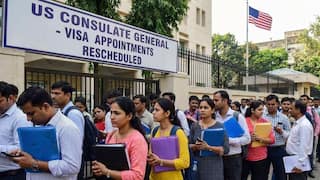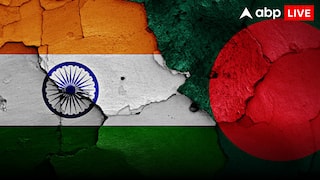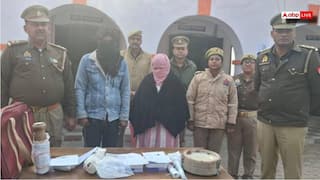Explorer
Global watchdog FATF to put Pakistan on 'grey list' for terror financing: Reports
In a likely blow to its economy and strained relations with the United States, Pakistan will be placed back onto an international terror funding watchlist from June.

The Financial Action Task Force (FATF) has decided to place Pakistan on its terrorist-financing 'grey list', news agency Reuters reported, citing an unnamed diplomatic source.
NEW DELHI: In a likely blow to its economy and strained relations with the United States, Pakistan will be placed back onto an international terror funding watchlist from June, news agency Reuters reported on Friday. The Financial Action Task Force (FATF) has decided to place Pakistan on its terrorist-financing 'grey list', news agency Reuters reported, citing an unnamed diplomatic source. The decision was taken on Thursday and the chair (of FATF) is expected to make a statement on Friday in Paris, the diplomat said. The FATF is an international policy-making and standard-setting body dedicated to combating money laundering and terrorist financing. The Financial Action Task Force put Pakistan on a “grey list” for not taking adequate action against terrorist groups and individuals. The Paris-based FATF is going to announce its decisions including on the motion to place Pakistan on the terror-financing watch list after a week-long session concludes on Friday. The FATF session is being held to review proposals that include putting Pakistan back on a list of countries which have failed to prevent terrorist financing. If adopted, the resolution would place Pakistan on the FATF grey-list of "jurisdictions with deficient anti-money laundering regimes." Pakistan was previously on the FATF watch-list from 2012 to 2015. The Wall Street Journal had named China, Turkey and Saudi Arabia as the 'friends' who had come to rescue Pakistan, saying that the three countries had blocked the US's motion to put Pakistan on the list. Pakistan had lobbied FATF member countries to keep it off the watch list, the report read. In the lead-up to the FATF plenary session, Pakistan government took control of three dispensaries run by Hafiz Saeed's Jamaat-ud Dawa (JuD) and the Falah-i-Insaniyat Foundation (FIF) in a rural area near the capital. Additionally, President Mamnoon Hussain on Feb 9 quietly promulgated an ordinance amending the Anti-Terrorism Act, 1997 to end a longstanding ambiguity over the status of the JuD and FIF by firmly placing them on the list of proscribed groups. The FATF, an intergovernmental body based in Paris that sets global standards for fighting illicit finance, had previously warned Islamabad it could be put back on the list without further efforts to crack down on the flow of funds to militants, Dawn newspaper reported. Pakistani officials and Western diplomats say being put on the FATF watch-list could deal a blow to Pakistan's economy, making it harder for foreign investors and companies to do business in the country, it said. Pakistan earlier this week launched a crackdown on seminaries and health facilities run by Saeed, chief of the Jamaat-ud-Dawa (JuD) and the mastermind behind the 2008 terror attacks in Mumbai. The action has sparked speculation that Pakistan is doing this to avoid getting greylisted at the plenary session of the FATF scheduled to be held in Paris later this month. (With inputs from PTI)
Follow Breaking News on ABP Live for more latest stories and trending topics. Watch breaking news and top headlines online on ABP News LIVE TV
Read more






































